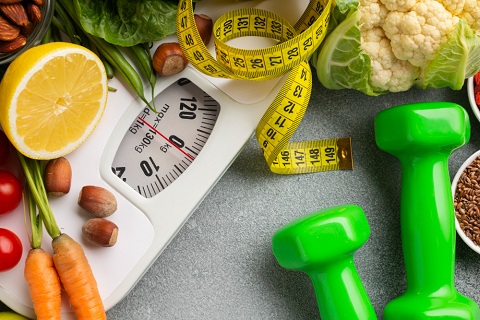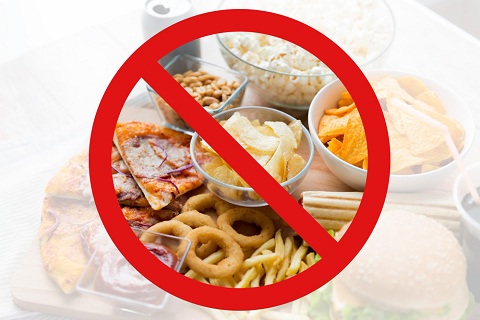In today’s health-conscious world, understanding the intricate relationship between body weight, fatty liver, and cholesterol levels is crucial for maintaining overall well-being. This article delves deep into the factors influencing these aspects and offers insights into managing them effectively.
Fatty liver disease, also known as hepatic steatosis, occurs when fat accumulates in the liver. It can be caused by various factors such as excessive alcohol consumption, obesity, insulin resistance, and certain medications. Symptoms may include fatigue, abdominal discomfort, and elevated liver enzymes in blood tests.
The Connection Between Body Weight and Fatty Liver
Obesity is a significant risk factor for fatty liver . Excess body weight, especially abdominal obesity, contributes to insulin resistance and inflammation in the liver, leading to fat accumulation. Adopting a healthy diet, engaging in regular physical activity, and maintaining a healthy weight are essential for preventing and managing fatty liver.
The Connection Between Body Weight and Cholesterol
The relationship between body weight and cholesterol levels is a critical aspect of overall health and well-being. Understanding how these two factors are interconnected can provide insights into managing cardiovascular risk and promoting a healthy lifestyle.
Impact of Body Weight on Cholesterol Levels
Excess body weight, especially in the form of visceral fat around the abdomen, is often associated with elevated cholesterol levels. This is primarily due to the metabolic changes that occur in individuals with obesity.
When a person carries excess weight, particularly around the midsection, it can lead to dyslipidemia, an imbalance in cholesterol levels. Specifically, it tends to increase low-density lipoprotein (LDL) cholesterol, commonly known as “bad” cholesterol. High levels of LDL cholesterol are a significant risk factor for cardiovascular diseases such as atherosclerosis, heart attacks, and strokes.
Exploring Cholesterol and its Role in Liver Health
Cholesterol is a fatty substance crucial for various bodily functions. However, an imbalance in cholesterol levels, particularly elevated levels of LDL (low-density lipoprotein) cholesterol, can contribute to liver problems. High cholesterol can promote the development of fatty deposits in the liver, impairing its function over time.
Managing Body Weight, Cholesterol, and Fatty Liver

The management of body weight, cholesterol levels, and fatty liver disease is a multifaceted approach that focuses on lifestyle modifications, medical interventions, and ongoing monitoring. Understanding how these factors interact and impact each other is crucial for promoting liver health and reducing cardiovascular risk.
Lifestyle Modifications
- Healthy Diet: Adopting a balanced diet that includes plenty of fruits, vegetables, whole grains, lean proteins, and healthy fats is essential for managing all three aspects. Avoiding excessive intake of saturated and trans fats, sugar, and processed foods can help improve cholesterol levels and prevent further liver damage.
- Weight Management: Achieving and maintaining a healthy weight is crucial for individuals with fatty liver disease and elevated cholesterol. Weight loss can lead to improvements in liver function, reduce liver fat accumulation, and positively impact lipid profiles.
- Physical Activity: Regular exercise, tailored to individual fitness levels, is beneficial for managing body weight, improving cholesterol levels, and promoting liver health. Aerobic activities, strength training, and flexibility exercises all play a role in a comprehensive fitness plan.
Monitoring and Follow-Up
- Regular Check-Ups: Routine medical check-ups, including liver function tests and cholesterol screenings, are important for monitoring progress and detecting any changes or complications early.
- Health Education: Providing education and support to individuals about the importance of adherence to lifestyle modifications, medication management, and regular follow-up care is key to long-term success in managing these conditions.
Holistic Approach
Taking a holistic approach that addresses not only body weight and cholesterol levels but also liver health is essential. This includes:
- Nutritional Counseling: Working with a registered dietitian to develop a personalized meal plan that supports liver health and cholesterol management.
- Behavioral Support: Engaging in behavioral therapy or support groups can help individuals make sustainable lifestyle changes and adhere to treatment plans.
- Stress Management: Managing stress through techniques such as mindfulness, meditation, and relaxation exercises can also contribute to overall well-being and liver health.
Here are the answers to the FAQs related to fatty liver, weight, cholesterol, and related topics:
Yes, fatty liver disease (hepatic steatosis) is closely related to body weight, particularly excess body fat. Obesity, especially abdominal obesity, is a significant risk factor for developing fatty liver disease. The accumulation of fat in liver cells is often associated with conditions such as metabolic syndrome and insulin resistance, both of which are common in individuals with obesity.
Fatty liver disease and cholesterol levels can be interconnected, especially in the context of metabolic health. Elevated cholesterol levels, particularly low-density lipoprotein (LDL) cholesterol, are commonly observed in individuals with fatty liver disease. This relationship underscores the importance of managing both conditions through lifestyle modifications and, in some cases, medical interventions.
Yes, there is a strong correlation between obesity and fatty liver disease. Excess body weight, especially visceral fat around the abdomen, contributes to the development and progression of fatty liver disease. Obesity-related factors such as insulin resistance, inflammation, and altered lipid metabolism play a role in the pathogenesis of fatty liver disease.
While there is no specific body fat percentage that universally causes fatty liver, individuals with obesity or higher levels of visceral fat are at increased risk. Body mass index (BMI) and waist circumference measurements are often used as indicators of obesity-related risk factors, including fatty liver disease. However, the exact threshold of body fat percentage associated with fatty liver can vary based on individual factors and underlying health conditions.
Conclusion
The link between body weight, fatty liver, and cholesterol underscores the importance of holistic health management. By adopting a balanced lifestyle that includes a healthy diet, regular exercise, and appropriate medical care, individuals can significantly reduce their risk of developing liver-related complications and maintain optimal cholesterol levels.





